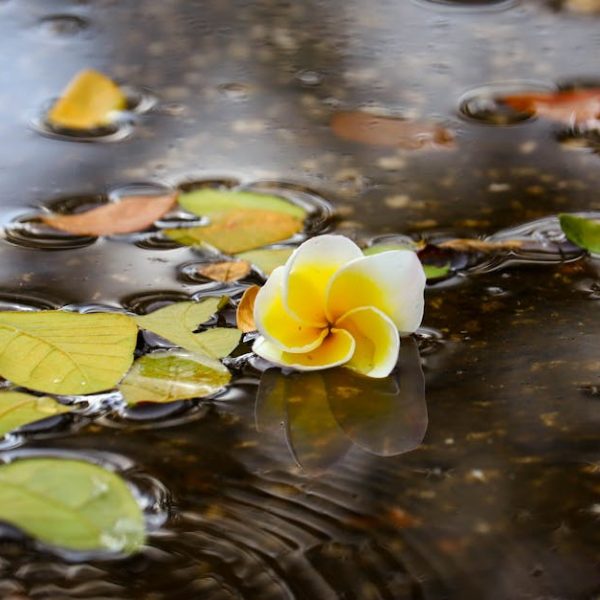When it comes to home invaders, spiders top the list. While these eight-legged creatures play an important part in our ecosystem, eliminating pests like mosquitoes and flies, their sight can nevertheless be discomforting for many of us. Some spiders also pose a significant health risk due to their venomous bites. Hence, it’s understandable why many homeowners look for natural ways to keep these creatures out of their dwellings. In this piece, we delve into 11 efficient natural spider-repelling methods that can keep your home spider-free.
Utilize Essential Oils
Essential oils are well-known for their wide range of health benefits, one of which is their effectiveness in repelling spiders. Certain oil varieties such as eucalyptus, tea tree, and peppermint are particularly successful due to their strong scent that spiders detest. I recommend diluting these oils with water and spraying them in areas where spiders frequent. However, keep in mind that essential oils also have a robust smell that some people may not appreciate. Also, they need to be reapplied frequently for lasting effect.
Use Vinegar
Vinegar, a common household item, can work wonders in repelling spiders. Its strong smell serves as a natural deterrent for spiders, much like essential oils. Creating a vinegar-based spider repellant is as simple as mixing equal parts of white vinegar and water in a spray bottle and spraying it around your home. However, the potent smell can be a turn-off, and the liquid can stain certain fabrics and surfaces.
Keeping a Tidy Home
Spiders love clutter—it provides them with plenty of hiding spots. Therefore, maintaining a tidy home can significantly reduce the spider population. This includes regular cleaning, dusting, vacuuming, and reducing clutter around the house. Pay particular attention to clutter hotspots like basements, garages, and storage rooms. However, be prepared for the consistent effort this method requires.
Plant Eucalyptus
Planting eucalyptus around your home can be a significant deterrent for spiders, thanks to the plant’s potent scent that spiders find displeasing. However, growing a eucalyptus plant requires certain conditions for optimal growth. A more straightforward alternative might be to use eucalyptus leaves or essential oil. Though the oil might be less effective than a fully grown plant, it is still a solid anti-spider solution.
Introduce Natural Predators
Inviting natural spider predators into your home or yard can provide an ecological solution to your arachnid problem. Pets like cats or birds, and even certain insects, are known for keeping the spider population in check. This method, though, may not be suitable for those with allergies or who aren’t fond of these animals.
Use Citrus Peels
The strong, fresh scent of citrus fruits is delightful for most humans but a big turn-off for spiders. Using citrus peels is an easy and cost-effective way to deter them. Simply place orange, lime, or lemon peels in places where you commonly see spiders. However, remember to replace these peels as they dry out or mold.
Cleanliness of Outdoor Areas
Maintaining clean outdoor spaces is just as important as keeping your indoor spaces tidy when it comes to spider control. Spiders often lurk in leaf piles, debris, and woodpiles. Ensuring that these areas are cleaned up regularly can significantly reduce spider presence in and around your home. Similarly, clearing out sheds and keeping patios clean can deter spiders from settling. One thing to note is that this method requires routine effort and vigilance.
Use of Diatomaceous Earth
Diatomaceous earth, a type of soft sedimentary rock, can be a potent deterrent for spiders. When crushed into powder, it can damage the spiders’ exoskeletons, causing them to dehydrate and die. To use diatomaceous earth against spiders, simply sprinkle the powder around areas where spiders may congregate. Do remember, however, that while it’s not harmful to humans, it can cause mild irritation if inhaled, so it’s best to use it with care.
Regularly Replace Outdoor Light Bulbs
Outdoor lights attract insects, which in turn, attract spiders. Regularly replacing your outdoor light bulbs with yellow or sodium vapor light bulbs can help as they attract fewer insects. This, in turn, reduces the food source for spiders, making your home less inviting. While this method is effective, keep in mind that the cost and effort of frequently changing bulbs can add up over time.
Mint Tea Bags
Mint is another scent that, while pleasing to our noses, spiders absolutely detest. By strategically placing mint tea bags in spider-heavy areas (don’t worry, used bags work just as fine), you are effectively creating an environment that spiders won’t want to inhabit. However, like the citrus peels, they will also need to be replaced frequently to maintain their deterrent effect.
Use of Horse Chestnuts (Conkers)
This is a folk remedy backed up by science: horse chestnuts, better known as conkers, emit a chemical that spiders find harmful. By scattering some conkers along the walls and at spider-prone areas, you can create a barrier that spiders won’t cross. On the flipside, these nuts can be choking hazards for small children and pets, so make sure to place them out of their reach.
Conclusion
In conclusion, keeping your home spider-free is about implementing a variety of these methods and seeing what combination works best for you. Remember, the goal isn’t to exterminate all spiders—just to maintain a comfortable balance where these eight-legged creatures are not overrunning your space. With these 11 natural methods, you have the tools to keep your home a spider-free zone without resorting to harsh chemical sprays.
Key Takeaway:
- Essential oils, vinegar, citrus peels, mint tea bags, and horse chestnuts are natural substances that can deter spiders due to their strong scent or harmful chemicals.
- Regular cleaning, both indoors and outdoors, can minimize spider habitats.
- Planting eucalyptus, using diatomaceous earth, and changing your outdoor light bulbs to ones that attract fewer insects can help reduce your home’s appeal to spiders.
- Introducing natural predators is an eco-friendly method to control spider population, but isn’t suitable for everyone.
Keep in mind that a balance, not total extermination, is the goal when it comes to dealing with spiders. They have a role in the ecosystem by controlling other pests. With these methods, you can achieve a comfortable and healthy environment in your home.
FAQs
Q: How frequently do I have to replace citrus peels or mint tea bags for them to remain effective?
A: It’s best to replace them as soon as you notice they’ve dried out or started to mold, typically within a week or two.
Q: Is there a risk of causing harm to spiders or other creatures with diatomaceous earth?
A: Yes, diatomaceous earth can be harmful to any small insect or spider. It can cause them to dehydrate and die. However, it is not harmful to larger pets or humans.
Q: Could the scent of essential oils or vinegar deter other pests as well?
A: Yes, many pests are deterred by strong scents from substances like essential oils and vinegar.
Q: Do I need to shake the bottle each time I use the essential oil or vinegar mixture?
A: Yes, shaking the bottle before using ensures the essential oil or vinegar is well distributed in the water.
Q: Could changing outdoor light bulbs to yellow or sodium vapor light bulbs affect the aesthetics of my home?
A: It could change the appearance of your home at night due to the different light color. However, many people find the softer glow of these lights to be pleasing.
We encourage you to share this article with others looking for natural ways to repel spiders from their homes. Explore more home-care articles for insightful tips and advice on our website.






